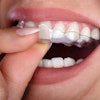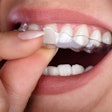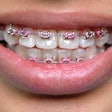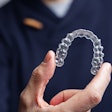The protein ATF6 may be a promising target for developing noninvasive orthodontic treatments by playing a role in triggering the production of tumor necrosis factor alpha, or TNFα, in immune cells called macrophages, according to a news release.
Furthermore, this process may hasten bone remodeling, potentially making orthodontic treatment more efficient, according to the story dated April 15.
“This protein not only accelerates tooth movement by influencing inflammation but also provides us with a new therapeutic target that could revolutionize orthodontic treatments, making them quicker and less invasive,” Bin Yan of the Affiliated Stomatological Hospital of Nanjing Medical University in China and lead researcher said in the press release.
The study used mouse models to examine how ATF6 in macrophages influences orthodontic tooth movement. Yan and fellow researchers discovered that activating ATF6 through corticotomy triggered a strong inflammatory response, which significantly accelerated tooth movement, according to the news release.
This response was linked to an increase in pro-inflammatory macrophages in the periodontal tissue, promoting bone remodeling. When ATF6 was genetically removed from macrophages, the acceleration slowed, while overexpression intensified the effect.
Further investigation showed that ATF6 directly boosts the production of TNFα, which is key in bone resorption. The findings suggest that targeting the ATF6-TNFα pathway may lead to faster, less invasive orthodontic treatments, according to the story.
“Macrophage ATF6 has proven to be a key regulator in orthodontic bone remodeling,” Yan said.




















